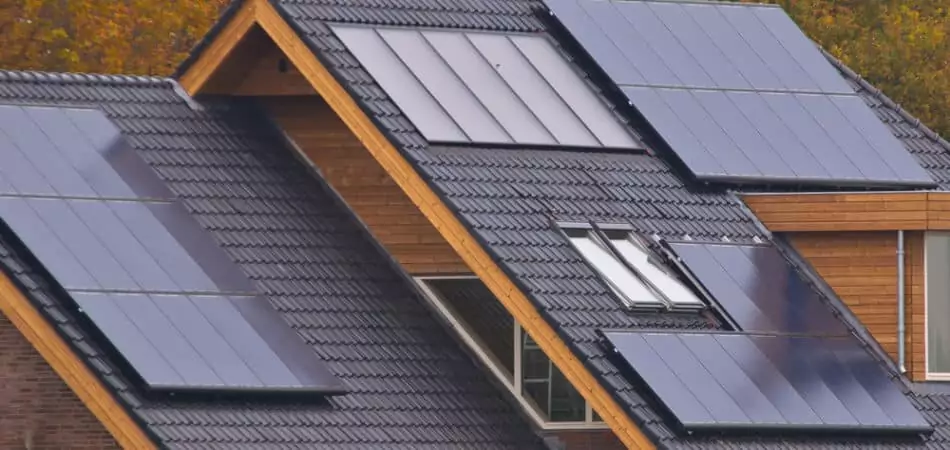
The solar installation process and finding the best roofing materials and roof types for installing solar panels requires careful consideration. While solar energy has become popular due to its environmental benefits and potential for cost savings, not every roof is suitable for installing solar panels. In this comprehensive guide, we will delve into the critical steps involved in the solar installation process and explore the best roofing materials and roof types to consider when embarking on a solar project.
Before proceeding with a solar installation, it’s crucial to determine if your roof is suitable for supporting solar panels. Factors such as roof orientation, angle, structural integrity, and shading must be evaluated. Ideally, roofs that receive ample sunlight throughout the day, have a south-facing direction and minimal shading are optimal for solar installations. Additionally, it’s vital to ensure the roof can bear the weight of the panels and that there are no underlying issues like leaks or damage that may require repairs.
The choice of roofing material plays a significant role in the long-term success of a solar installation. When integrated with solar panels, certain materials are more durable, compatible, and efficient. Here are some recommended roofing materials:
Asphalt shingles are the most commonly used roofing material in North America and are well-suited for solar installations. They offer several advantages that make them a popular choice when considering solar panels:
1. Cost-effectiveness: Asphalt shingles are one of the most affordable roofing materials, making them a budget-friendly option for homeowners considering solar installations. The lower upfront cost can offset some of the expenses associated with installing solar panels.
2. Durability: High-quality asphalt shingles can withstand various weather conditions, including heavy rain, wind, and snow. Look for shingles with excellent impact resistance ratings, as they can withstand potential damage caused by hail or falling debris, ensuring the longevity of both the roof and solar panels.
3. Weight: Asphalt shingles are relatively lightweight compared to other roofing materials, which makes them compatible with various roof structures. This advantage simplifies the installation process and reduces the risk of placing excessive weight on the roof’s structure.
4. Easy Installation: Roofing professionals are experienced with installing asphalt shingles, making integrating solar panels a smoother process. The familiarity and ease of installation can potentially save time and reduce labor costs during the solar panel installation process.
5. Versatility: Asphalt shingles come in a wide range of colors and styles, allowing homeowners to choose an aesthetic that complements their home’s overall look. This versatility ensures that the solar panels can be seamlessly integrated into the roof’s design, enhancing the broad curb appeal.
The age and condition of the existing asphalt shingles should be assessed before installing solar panels. If the shingles are nearing the end of their lifespan or showing signs of deterioration, replace them before proceeding with the solar installation to ensure a solid foundation for the panels.
Check the warranty of your current roofing material and verify if installing solar panels will impact its coverage. Some manufacturers may require specific installation guidelines or provide recommendations for integrating solar panels without voiding the warranty. It’s crucial to be aware of any such limitations.
Different mounting options exist for integrating solar panels onto asphalt shingle roofs. The most common methods include rack-mounted systems, where the panels are secured to mounting brackets installed on the roof, and ballasted systems, where the weight of the panels keeps them in place without penetrating the roof.
Tile roofs, commonly found in Mediterranean or Spanish-style architecture, offer aesthetics and durability. Solar panel installation on tile roofs requires specialized mounting systems designed to fit the specific tile profile and maintain the roof’s integrity. It’s essential to work with experienced solar installers who are familiar with the intricacies of installing panels on tile roofs. Slate roofs are known for their elegance and longevity, often lasting over a century. While slate is a durable material, installing solar panels on slate roofs can be more complex due to the fragility of the tiles. Specially designed mounting systems secure the solar panels while minimizing potential roof damage. Hiring professionals experienced in slate roof solar installations is crucial to ensure a successful integration. Flat roofs are typical in commercial buildings and some residential properties. Solar installations on flat roofs typically utilize ballasted or anchored mounting systems. These systems distribute the weight of the solar panels evenly across the roof’s surface without penetrating the roof membrane. It’s vital to ensure proper waterproofing and regular roof maintenance to prevent potential leakage or damage. Membrane roofs, such as Ethylene Propylene Diene Monomer (EPDM) or Thermoplastic Polyolefin (TPO) roofs, are commonly found on commercial buildings. Solar installations on membrane roofs require specialized mounting systems designed to secure the panels without compromising the roof’s integrity. It is recommended to work with professionals experienced in installing solar panels on membrane roofs to ensure proper installation techniques and to comply with roofing warranty requirements. In conclusion, while asphalt shingles and metal roofs are widely compatible with solar installations, other roofing materials and roof types, such as tile roofs, slate roofs, flat roofs, and membrane roofs, can also support solar panels. It is crucial to assess the specific requirements and challenges associated with each roofing material or roof type and consult with certified solar installation professionals for expert guidance. With the right combination of roofing material and solar panel installation expertise, homeowners can embrace solar energy while maintaining the integrity and aesthetics of their roofs. 2. Slate Roofs:
3. Flat Roofs:
4. Membrane Roofs:
Wrapping it Up
